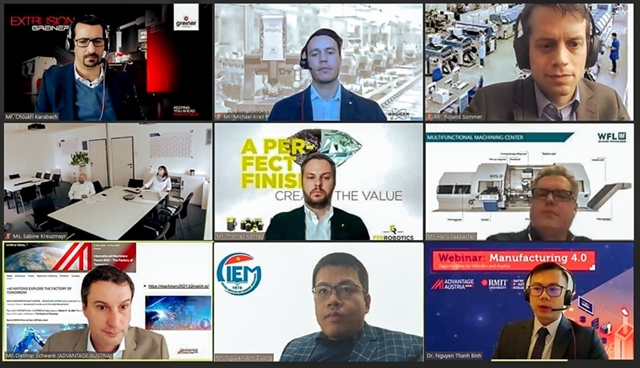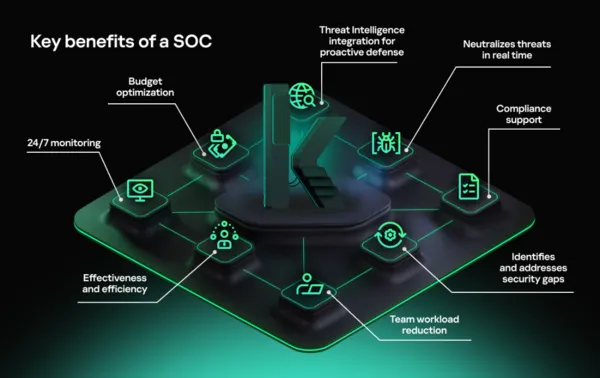 Economy
Economy


|
| TheTowards Manufacturing 4.0 webinar connected Austrian high-tech engineering and machinery companies with Vietnamese manufacturers looking to increase their competitiveness and decrease costs.— Photo courtesy RMIT |
HÀ NỘI — Việt Nam’s capability to technologically upgrade the manufacturing industry was the central theme at a recent international webinar.
Hosted by RMIT University’s Centre of Digital Excellence (CODE) and ADVANTAGE AUSTRIA, the webinar, 'Towards Manufacturing 4.0' connected Government officials, universities and Vietnamese manufacturing companies with international partners, including industrial technology leaders from Austria.
Head of CODE Associate Professor Jerry Watkins said the webinar is perfectly timed to help Vietnamese manufacturers plan their next technology investments as global markets continue their recovery.
“One of the biggest opportunities for Việt Nam will be to upgrade the capability of its manufacturing sector using emerging technologies like artificial intelligence and the internet of things,” he said.
“We’ve already seen VinFast making a significant investment in robotics and automation, which is a clear signal of the kind of opportunities available to those Vietnamese manufacturers willing to invest in technology and innovation.”
According to Austrian Commercial Counsellor Dietmar Schwank, an objective of the Towards Manufacturing 4.0 webinar was to connect Austrian high-tech engineering and machinery companies with Vietnamese manufacturers who want to increase their competitiveness and cut costs.
Experts on smart manufacturing, robotics and machine learning from Austrian firms such as Bruker Alicona, Greiner Extrusion, RÜBIG Plant Engineering and WFL Millturn Technologies presented cutting-edge technologies and discussed their application in Việt Nam’s manufacturing industries.
An example of such technologies is FerRobotics’ patented Active Compliant Technology, which optimises the sensitivity and flexibility of industrial robots used in automotive, metalwork, shipbuilding and furniture production.
Vice President APAC of FerRobotics Thomas Konrad said: “We see Việt Nam as a top potential market, in part because of our two nations’ growing bilateral ties under the EU-Việt Nam Free Trade Agreement.
“But more than that, the country’s vibrant innovation ecosystem and established reputation as a regional manufacturing hub are hinting at a fundamental shift to Manufacturing 4.0 which we want to be a part of.”
Guest speaker and Director at the Central Institute for Economic Management Nguyễn Ánh Dương said that while Vietnamese manufacturing companies are eager to take on more value-added roles in the global supply chain, many are not ready yet due to a lack of transformation management, digital or technological capabilities.
“It’s important to identify gaps in their current capabilities and find the right people and tools to fill those gaps. Firms often cannot do that alone and that’s why international business networks, consultancy and knowledge sharing are so important,” Dương said.
The webinar was supported by the Austria-Vietnam Innovation Council, whose Advisory Board comprises entrepreneurs and experts from Vietnam’s and Austria’s innovation ecosystems including RMIT CODE, 500 Startups, Vietnam Angel Network, TE-FOOD and Son Kim Retail. — VNS




